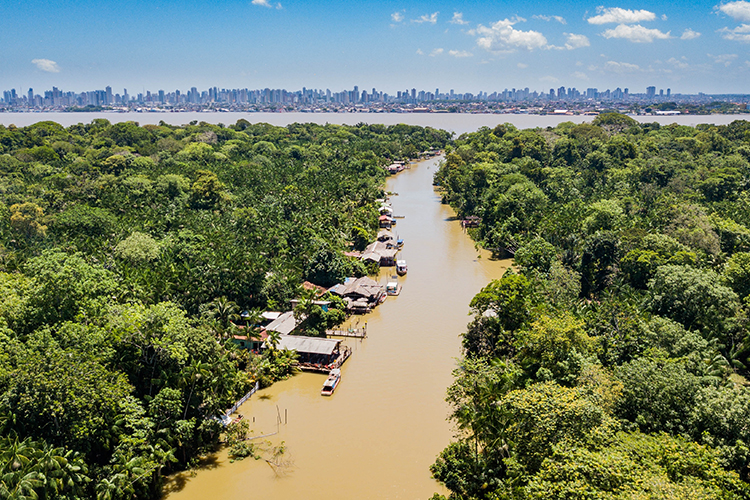

While Brazil’s President has declared the Amazon meeting the ‘implementation COP,’ Marco Magrini argues its success is held hostage by a $1.3 trillion finance gap

By
Delegates from all over the world have joined in Belém, in the beating heart of the Amazon, to start debating the climate future of the planet – it’s the thirtieth conference of the Parties, better known as COP30. This year’s venue has a deep significance. Brazil’s rainforest is a living metaphor: a vast, generous, and fragile ecosystem. It can regenerate if given the chance, but it cannot survive endless deforestation. Humanity, too, stands at similar threshold.
Brazil’s government, led by President Lula da Silva, wanted the Amazon COP to be remembered as the ‘implementation COP’ – a turning point that would move on from years of grand pledges to a decade of delivery. The Paris Agreement turned ten this year, and its first Global Stocktake has offered a crude verdict: the world cannot limit warming to 1.5°C as dreamed for long time. Emissions may peak soon but are still rising, the clean-energy transition remains too slow, and global finance has not shifted decisively away from fossil fuels.
Enjoying this article? Check out our related reads…
The centrepiece of COP30 could be finance. The so-called Baku–Belém Roadmap set a noble target: US$1.3trillion a year by 2035 to help developing nations adapt to climate change and decarbonise their economies. In principle, this is the engine that could make the Paris Agreement run. In practice, it is a distant dream. Fewer than five per cent of previously promised funds have been delivered, and few expect richer nations to suddenly open the purse – with the biggest historic polluter, the United States, just about to walk out of the UN Climate Convention.
Without credible money, everything else stalls. Developing countries (which did very little to cause the problem) cannot invest in clean energy or resilience at the scale required. The gap between north and south, already wide, risks turning into a chasm. This will be one of Belém’s most delicate debates: how to share responsibility in a warming world.
The Brazil presidency hopes to steer the conversation toward nature-based solutions. Expect talk of an ‘Amazon Declaration’ linking forest protection, biodiversity, and Indigenous stewardship. The Amazon is not just a carbon storehouse; it’s a living system of immense complexity, home to millions of species and countless communities. Preserving it is both a climate necessity and a moral duty. Indigenous voices, long marginalised in global negotiations, this time may gain more space. Yet, noble as these intentions are, implementation will depend on how much funding and legal backing follows the words.
And here comes the elephant in the room: fossil fuels. The phrase ‘phase out’ was carefully avoided in the COP28 final text in Dubai, replaced by the more ambiguous ‘transition away’. We should expect similar verbal gymnastics in Belém. With oil and gas interests entwined deeply with national economies, how can we arrive at a final declaration that is unanimously approved, as prescribed by the UN rules? The likely result is yet another round of language that may sounds determined, but leaves loopholes wide enough for oil pipelines to pass through. Realistically – again, the American superpower sailing in the exact opposite direction doesn’t bode too well – COP30 will likely end as a better-worded disappointment. If it doesn’t, we’ll be happy to have been wrong.
Climate diplomacy may be maddeningly slow, but it is still the only arena where nearly every country on Earth agrees to sit at the same table. In that sense, COP30’s success will be measured less by what is signed in Belém after two excruciating weeks of confrontations, than by what happens afterward – in fiscal budgets, in energy markets, and in national laws.
The game, as crucial as it may be, is on.




